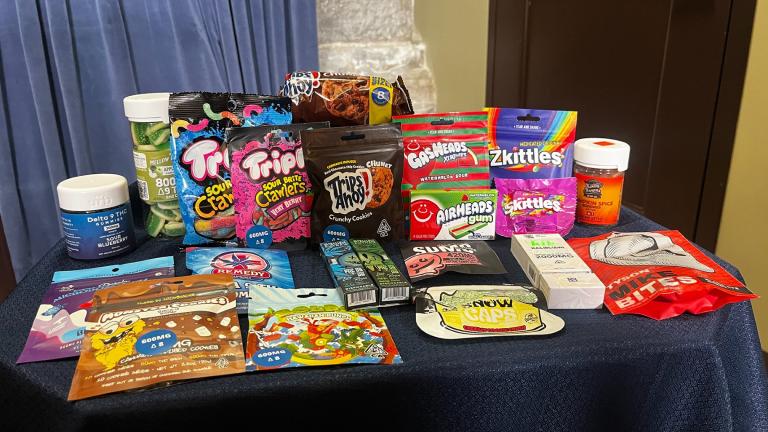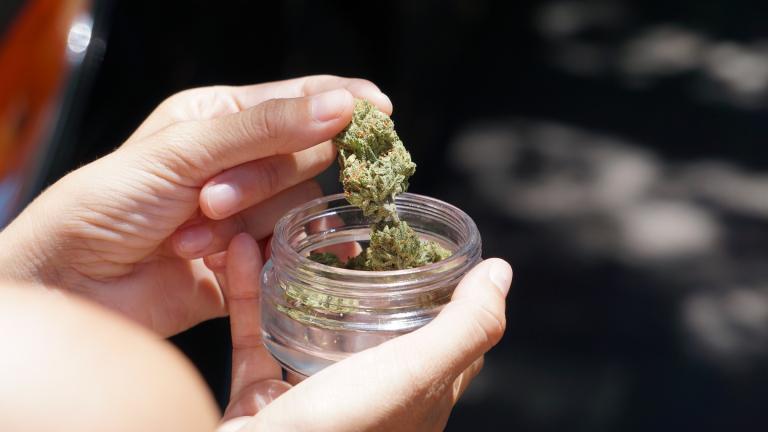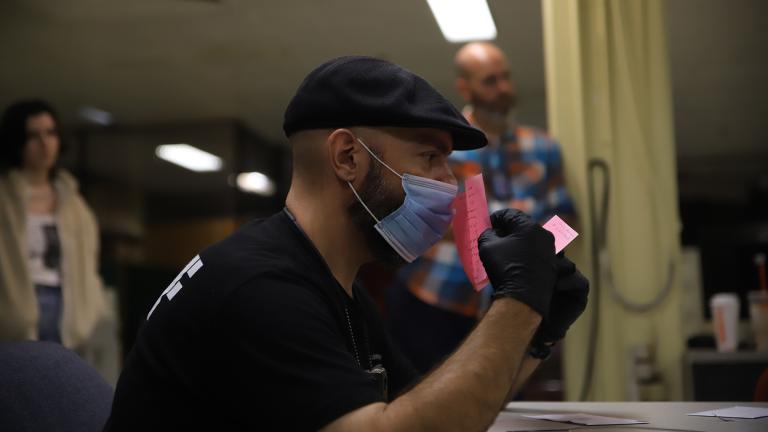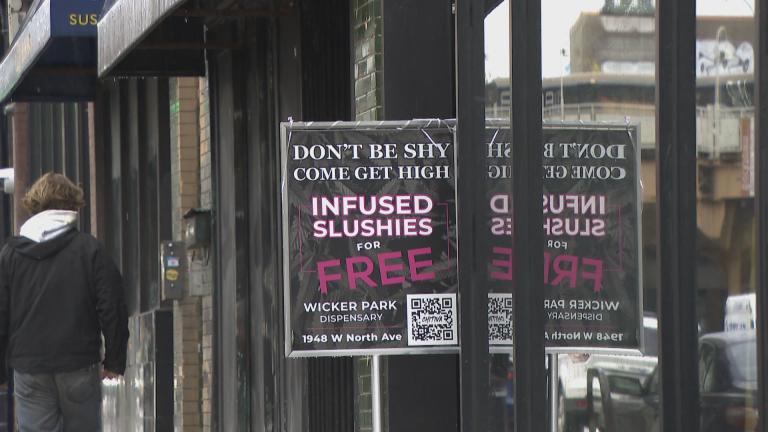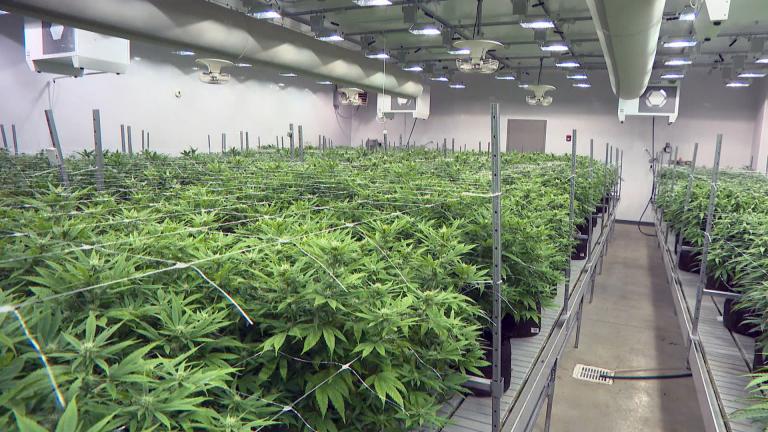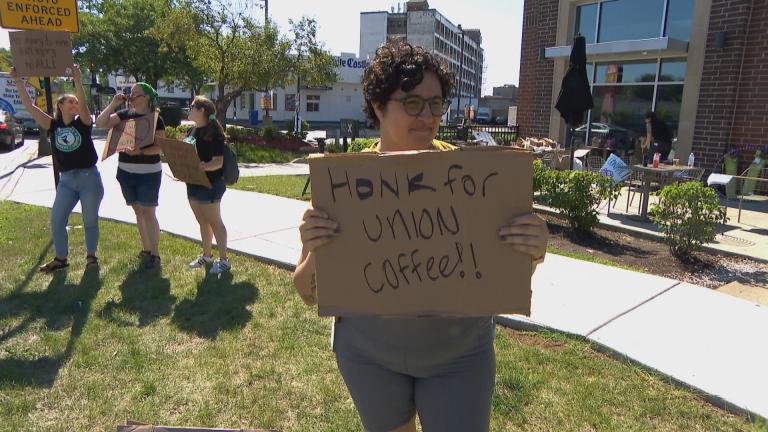With marijuana set to be legal in Illinois come January, the state is counting on it to bring in $57 million this fiscal year in licensing revenues and taxes. The projections increase over time, edging toward an expectation that the state will see close to half a billion dollars in revenue within five years.
But a growing number of communities across Illinois are considering saying “no” to cannabis sales within their borders, including suburban Naperville.
“We have a great, safe community here in Naperville. We’ve got a great brand. It’s a very family oriented place,” Naperville City Councilman Kevin Coyne said. “And a lot of the experts in this arena have raised a lot of concerns that are very troubling. That if you allow retail sale of marijuana you simply expand marijuana use, that leads to teenage delinquencies, car accidents, a host of other social problem that I don’t want to see come to Naperville an certainly don’t want to be the guinea pig testing whether these concerns prove out or not,”
He may be open to cannabis dispensaries down the road, Coyne said, but first, he wants to see how things go elsewhere.
A 5-4 preliminary vote would prohibit marijuana dispensaries in Naperville, but an ordinance is still in the draft stages. A vote could come in early September.
Naperville Mayor Steve Chirico hopes the council will change its mind and permit recreational marijuana dispensaries.
Otherwise, he estimates the city will be giving up what could be $2.3 million in annual sales, and he doesn’t want Naperville missing out – on the money, or the chance for economic development.
“There still seems to be a lot of discussion about whether adult use marijuana is right. You know, and what I keep saying is that’s not what we’re talking about here. It’s going to be legal on Jan. 1. And since it’s going to be legal I think it makes the most sense for us to provide a good, safe place here in our city to sell it,” Chirico said.
He also says banning marijuana shops would mean ceding regulation of them to neighboring communities, given that municipalities are free to set zoning and other requirements.
It’s not just Naperville; other towns are likewise slated to vote on bans of marijuana sales, from Grayslake to Moweaqua, though there state is not keeping an official, definitive list.
“The focus is on tracking the individual applications for dispensaries and confirming the applicants are zoning compliant and/or have local zoning approval. There is no deadline for municipalities to decide whether to allow or ban recreational marijuana sales,” said Illinois Department of Financial and Professional Regulation spokesman Chris Slaby.
Experts – including University of Illinois professor of labor and employment relations Robert Bruno, who authored a story on the financial impact of legalized marijuana on Illinois, and state Rep. Bob Morgan, D-Deerfield – say they don’t expect local bans to make a dent in the program, or in the money it’s expected to make for the state.
At least, as long as Chicago doesn’t opt out.
There’s no indication that’s going to happen.
“The City is working with our state and local partners to develop comprehensive rules and regulations that will guide a safe and equitable implementation of legalized cannabis throughout Chicago,” an aide to Mayor Lori Lightfoot said via email. “Chicago’s plans will include provisions that will ensure responsible use and sale, amend zoning requirements, and will provide pathways for businesses of all sizes and types to reap the benefits created by this new and emerging industry. The City is also working to ensure that new revenues raised will have the highest benefit for all of Chicago's communities, including those which have been most impacted by the war on drugs.”
Municipalities that do choose to ban marijuana sales can only prohibit businesses from setting up shop.
“They can’t prevent home-grow or consumption,” Morgan said. “Just because you ban it, you’re still going to have residents using it.”
Otherwise, he estimates the city will be giving up what could be $2.3 million in annual sales.
Follow Amanda Vinicky on Twitter: @AmandaVinicky
Related stories:
How Illinois Employers Might Handle Recreational Marijuana
Driving Under the Influence of … Marijuana?
800,000 Eligible to Clear Their Record in Illinois Legal Pot
Pritzker Signs Bill Legalizing Recreational Marijuana

